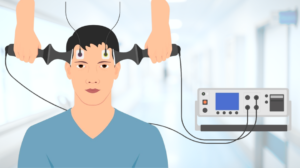What is Generalized Anxiety Disorder?
Anxiety disorders are divided into six different categories, the first being Generalized Anxiety Disorder. When you live with GAD, your emotional and mental response to stress triggers is typically larger than warranted. Symptoms last longer than a typical period of stress.
Doesn’t Everyone Have Anxiety?
Stress and anxiety are endemic to the lives we live these days. Feeling nervous, stressed, and anxious are normal human responses to stressors. Going for a job interview, learning how to drive, or giving a public speech, for example, can all cause anxiety. But there is a difference between feeling anxious and living with GAD.
Those who live with GAD experience stronger reactions to stressors than the average person. Their symptoms persist longer and with more intensity than what is typical. Because their anxiety symptoms are so intense, they often impair some or all aspects of their life.
What Are the Symptoms of GAD?
Some of the most common symptoms of GAD include:
- Intense worry and difficulty controlling or stopping negative thoughts.
- Restlessness and irritability.
- Insomnia and fatigue.
- Memory loss and difficulty concentrating.
- Muscle soreness and tension.
- Pain and tightness in the chest.
- Difficulty breathing and light-headedness.
- Digestive issues such as constipation, diarrhea and gas pain.
- Chills or hot flashes.
Someone who is living with GAD may experience some of these symptoms more frequently than others and some not at all. Additionally, 90 percent of those living with GAD will also experience other anxiety disorders in their lifetime.
How is GAD Diagnosed?
A doctor can diagnose GAD after doing physical tests, asking about your symptoms, and checking for underlying causes. There is no simple blood test or exam that states if GAD is present.
CAMH has a self-assessment tool, GAD-7, that can help you understand how severe your symptoms of GAD are. While it doesn’t diagnose GAD, it can help you to determine your next steps in seeking help. As noted on the CAMH website: You can take the test as many times as you like. The data is anonymous and cannot be linked back to you in any way.
What is the Treatment for GAD?
There are several ways that you can manage your GAD symptoms. The most common treatment options are talk therapy with a counsellor or therapist, certain medications prescribed by your doctor, and various lifestyle changes. Some examples of positive lifestyle changes are: connecting and socializing with loved ones, making time for regular physical activity, limiting caffeine, and getting enough sleep each night. Some people find meditation can be helpful.
GAD and COVID-19
The stress created by the COVID-19 pandemic is enough to give anyone feelings of anxiety. Social distancing has resulted in reduced interaction with loved ones, fewer opportunities for doing the things we enjoy, and an increased fear about the future.
For those living with GAD, COVID-19 could increase the severity and longevity of their symptoms. If the normal levels of anxiety you experience are lasting longer than usual or present with more intensity, consider speaking to your doctor or counsellor about further coping strategies to use during COVID-19.
How to Get Help
If you’re looking for information, support, or treatment for GAD, the Anxiety Canada website is a great place to start. Learn more about anxiety and find different forms of treatment with their map tool. They also have a page dedicated to anxiety resources during COVID-19.
The Anxiety Disorders Association of Ontario is another excellent resource that offers treatment programs and workshops, information for getting help, as well as information for parents of young adults living with GAD.
ConnexOntario is a 24/7 referral service which provides free, anonymous support. The professional operators at Connex can provide listening support, offer strategies for coping, and even find you appropriate treatment options in your area.
When we open the doors of Eli’s Place, those living with serious mental illness will have another treatment option. It will be the first long-term rural residential treatment centre for young adults in Canada. Learn more about our story here.




